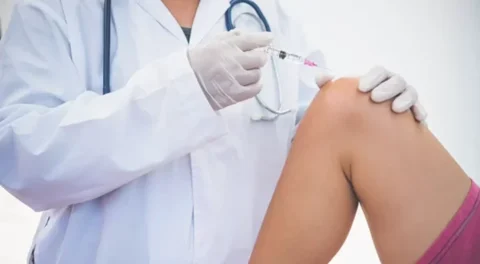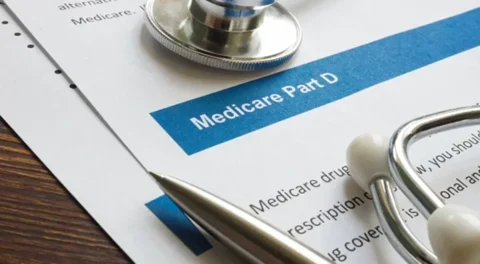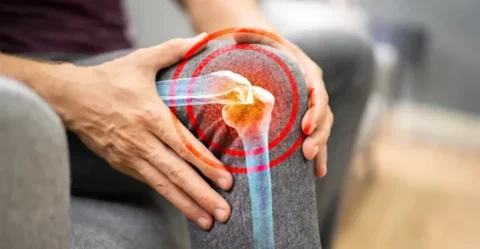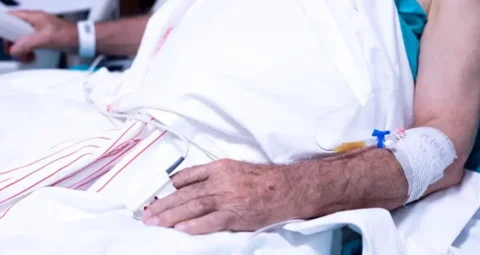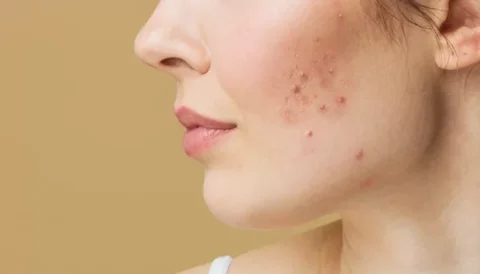With hair loss being a concern of many members of the population, it’s not surprising that there are several treatments addressing the issue available in the market. Two very common ones happen to be PRP (platelet-rich plasma) therapy and hormone replacement treatments that address androgenetic alopecia and other types of hair loss. While both are effective, you may want to choose one over the other depending on the cause of your hair loss.
So what’s the main difference between PRP treatments and hormone replacement treatments for hair loss? The short answer is that PRP increases the concentrations of platelets and growth factors found in the patient’s own blood supply to promote hair growth while hormone replacement treatments try to fix the chemical imbalance in your body that’s causing a certain type of hair loss.
Which To Choose Between Platelet-Rich Plasma Therapy VS Hormone Replacement Treatments
When it comes to choosing a treatment to treat your hair loss, PRP and hormonal replacement therapy can help with hair regrowth depending on the cause of your hair condition. To ensure that you’re getting the best treatment for yourself, it’s best to consult your doctor and come up with a suitable treatment plan. While both may be viable options, here are some of the key similarities and differences between the two hair loss treatments.
Similarities as a Treatment For Hair Loss
Platelet-rich plasma therapy and hormone replacement treatments aren’t actually all that different. In fact, both of these treatments are non-surgical, effective for hair loss, and longer-lasting than other hair loss treatments.
1) Non-Surgical Treatments
When it comes to the similarities of PRP therapy and hormone replacement treatments, both offer patients a non-surgical procedure. While PRP therapy does require patients to have the treatment done in a doctor’s office, it’s considered a non-surgical outpatient treatment.
This is due to the fact that the entire procedure only requires a blood draw and injections to balding areas. Similarly, there are some hormone replacement treatments that also inject the hormone directly into your body that don’t require any type of surgery.
2) Effective Therapy for Hair Loss
On a basic level, PRP treatments and hormone replacement treatments are similar as they have both been proven to be effective treatments for hair loss. While their methods may differ they are both able to help patients achieve a full head of hair and boost hair regrowth during the process.
Hair loss often occuring due to the hair follicle and hair cycle being in the inactive phase of hair growth. With these two treatments boosting growth factors or balancing hormones, they’re able to help stimulate active hair growth and produce certain amounts of hair to treat hair loss.
3) Long Lasting Results
The downside of both PRP therapy and hormone replacement treatment is that their results aren’t permanent. While they’re both long-lasting, you may need to have additional treatments or medications to maintain their results.
Benefits from PRP therapy usually last around 18 months to 2 years before needing additional shots of the platelet-rich plasma. On the other hand, hormone replacement treatments may need to be continuous treatment whether it be shots or pills to maintain the results.
Once you stop taking hormone replacement medications, it’s possible that your hair loss condition will reappear.
Differences as A Treatment for Hair Loss
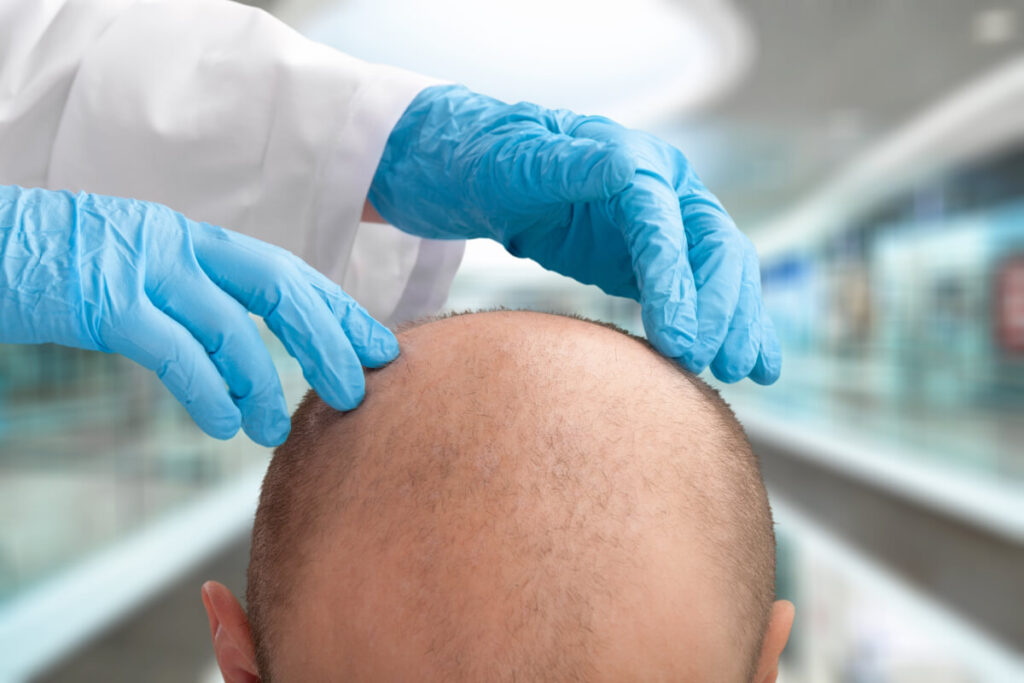
Even though they’re similar in many ways, PRP and hormone therapy also have key differences that cater to different types of hair issues. If you would like to know what’s the better choice for your specific type of hair loss problem, it’s best to visit a hair loss specialist.
1) Growth Factors vs Hormones
While PRP and hormone replacement treatment can promote a bit of hair growth, they do so in very different ways. PRP therapy takes blood from each individual patient and separates the platelet-rich plasma found in the blood. This platelet-rich plasma is filled with numerous growth factors that boost collagen production and cell growth that stimulate the hair follicles cells for hair regrowth.
Alternatively, hormone replacement treatments address your hormone levels that are causing types of hair loss that are linked to chemical imbalances. These hormonal imbalances can be caused by a number of things like stress and diet, however, in women hair loss due to hormone imbalances are often caused by menopause.
It’s common for women to undergo some kind of decline in hair density or a degree of hair loss due to the chemical changes brought on by menopause. To treat this, many doctors will prescribe birth control pills to increase the estrogen found in the body. This has been shown to be an effective hair loss treatment in those suffering from a chemical imbalance.
2) Major Side Effects and Adverse Reactions
For the most part, both these treatments are safe to treat different types of hair loss and stimulate hair rejuvenation. But while PRP usually has minimal side effects during the healing process like soreness or discomfort on the injection site, hormone replacement therapy may have more adverse side effects.
From mild headaches and stomach aches, hormone replacement therapy can cause cramps, changes to your sex drive, anxiety, weight changes, etc. If you’re experiencing any adverse effects from either treatment, you should contact your doctor immediately to either change your medications or treat the side effects.
3) Administration of the Treatment
During the PRP therapy treatment, a concentration of platelets from your own blood cells will be injected through a syringe directly onto the weaker hair follicles. The number of injections may differ depending on the treatment site but commonly only 2 to 3 injections are needed. After the initial treatment, you’ll need to come in for a couple more sessions to reap the full benefits of the hair restoration treatment and address their androgenetic alopecia.
On the other hand, hormone replacement therapy can be administered in two different ways to achieve hair restoration and continued hair regrowth. Similar to PRP, you can have hormonal shots administered to balance out the chemicals in your body. The other option is taking oral pills.
Both birth control and estrogen pills are commonly prescribed by doctors when hormone replacement patients seek to address their dramatic hair loss or the difference in hair mass. Either application can be a cure for hair loss and promote dense hair growth.
Get Quality Beauty and Medical Supplies for the Right Price at FACE Med Store
No matter which treatment of hair loss your patients chose, PRP injections and hormone replacement treatments can hopefully address the type of hair loss they’re suffering from. Both treatments have a fairly simple procedure as they can stimulate the hair follicle to enter the anagen phase and active hair regrowth stage through injections or pills.
However, if you want to treat your androgenetic alopecia or common hair loss disorder safely, the right tools in the hands of an experienced medical professional are key. Here at FACE Med Store, we offer an array of top-quality tools at reasonable prices to several clinics around the country. Contact us today to see our stock list.
Learn More: Does PRP Help If Hair Loss Is Not Due To Family History?

